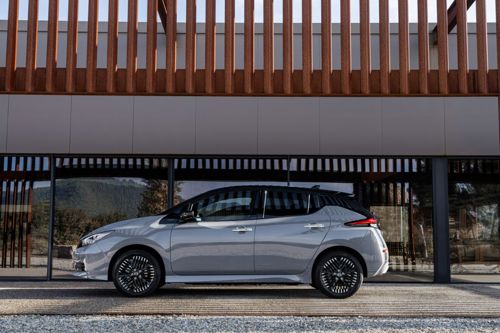Nissan and Honda have officially called off their merger talks, ending discussions that could have created the world’s third-largest carmaker.
The two companies, along with Mitsubishi Motors, have instead opted for a looser strategic partnership focused on electrification and next-generation vehicle technologies.
In a joint statement, Nissan confirmed the decision: “Going forward, Nissan and Honda will collaborate within the framework of a strategic partnership aimed at the era of intelligence and electrified vehicles, striving to create new value and maximize the corporate value of both companies.”
Why the deal collapsed

The proposed merger, announced in December, was meant to bolster both brands against rising competition from Chinese manufacturers such as BYD.
However, discussions faltered after Honda pushed for a structure that would make Nissan a subsidiary, effectively placing it under Honda’s control.
This shift from the originally planned joint holding company met resistance from Nissan’s board, leading to the collapse of negotiations.
While the companies explored various integration models, both concluded that it was in their best interest to terminate the agreement.
Nissan’s ongoing struggles
The failure of the merger leaves Nissan in a precarious position.
Still reeling from its fractured alliance with Renault, the company faces mounting financial challenges. Its profits for the six months ending in September 2024 plunged by 94%, forcing drastic cost-cutting measures, including a 20% reduction in manufacturing output and 9000 job cuts.
Nissan’s debt obligations loom large, with analysts warning of potential bankruptcy by 2026 if the company fails to secure additional support. The merger with Honda was seen as a lifeline, offering shared resources to manage the high costs of electric vehicle (EV) development.
Competitive pressures and the future of Nissan

Legacy automakers face mounting research and development costs as they transition from internal combustion engines to EVs.
Nissan’s early lead in electrification, with models such as the Leaf, was a key asset in the merger discussions. However, its position has been eroded by aggressive competition from Chinese brands and shifting consumer preferences.
Industry experts believe Nissan must now look elsewhere for support. Lucinda Guthrie, head of Mergermarket, noted, “Nissan is in a tricky position following the collapse of its $60 billion merger talks with Honda. The Japanese automaker will be looking for a new firm to partner with.”
Could tech giants be the answer?
With traditional merger talks off the table, Nissan may pivot towards technology-driven partnerships. Taiwanese electronics manufacturer Foxconn has already expressed interest in collaborating with Nissan, though it has ruled out an acquisition.
Foxconn Chairman Young Liu confirmed the company’s willingness to explore joint EV projects but emphasised that it does not seek to acquire Nissan outright.
The road ahead
Nissan now faces critical decisions about its future direction.
Without a major partner, the company must either find a new merger opportunity or double down on cost-cutting and internal restructuring to remain viable in the long term.
With the industry rapidly evolving, the next few years will be pivotal in determining whether Nissan can survive the electrification race or risk falling behind its competitors.





